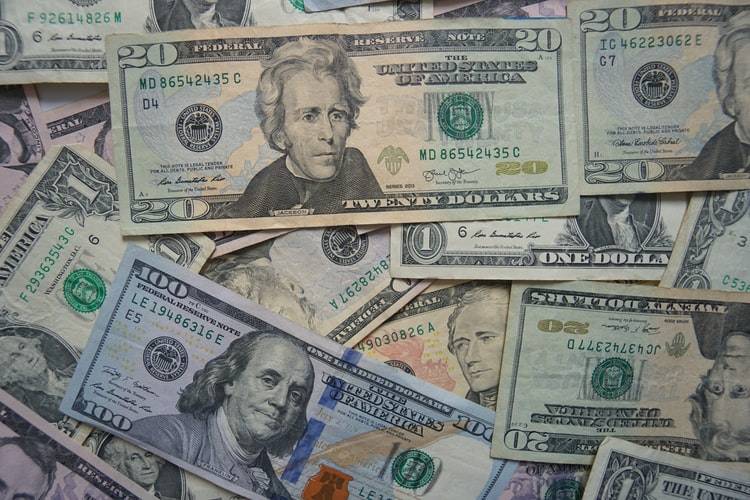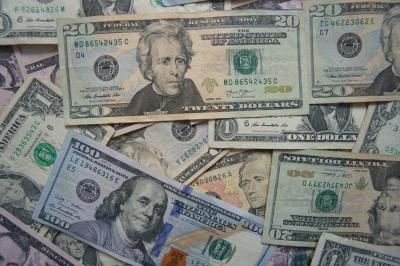The Russian-Ukrainian war quickly reflected on the fragile economic situation in Lebanon, which is already suffering from a severe crisis constricting the situation for consumers and small traders. The rapid rise in oil, wheat, and industrial raw material prices led to a significant increase in demand for the dollar to pay for purchases at higher amounts. With this increase that Lebanon's Central Bank is unable to meet, the dollar became unstable, rising in the black market by around two thousand Lebanese pounds compared to the official rate. On Monday, the black market dollar price reached 22,450 pounds for buying, while the selling price hit 22,350 pounds.
Economic journalist Munir Younes stated in an interview with "Sky News Arabia" that the consequences of the Ukrainian war on Lebanon are similar to those felt in other countries worldwide. He noted, "Oil prices have risen, leading to a jump in raw material and consumer goods prices, as well as transport costs, along with an increase in Ukrainian wheat prices and a global resource shortage."
Younes added that "Lebanon specifically imports wheat from Ukraine and must look for other countries to import from, which are certainly at much farther distances than Europe." He explained: "The prices of raw materials and metals like aluminum and copper have risen, which means more demand for the dollar in the Lebanese market to settle external invoices at a multiplied price. A larger amount of dollars should be secured daily, with the Central Bank providing part from its mandatory reserves, while the rest comes from private exchange shops."
Younes said that "when the demand for dollars increased, and the market needed between 70 and 80 million dollars daily, the price of the green currency rose again, and the gap became clear between the official exchange platform managed by the Central Bank and the black market for dollar trading, with the difference widening to more than two thousand pounds per dollar until today."
He continued, "It is expected that things will stay under control if oil and wheat prices stabilize at their current levels. However, if they rise further, the Central Bank will be forced to intervene again and inject dollars into the market, but it cannot engage too far in this game as its dollar supply is limited, consisting of mandatory reserves and citizens' deposit funds in the bank, which amount to about 11 billion dollars. It has committed to managing the situation until the parliamentary elections in the next two months at most."
The economic journalist added, "If the price of a barrel of oil rises to 150 dollars, for example, then the problem will exceed Lebanon, and the Central Bank's margin for maneuver will tighten as the global crisis escalates, especially with rising fuel prices and raw materials used in industry, as well as wheat."
In the same context, economic writer and analyst Imad Shadiak stated that "this new reality resulting from the Russian-Ukrainian war and the rise in oil prices specifically is turning importers, particularly fuel importers, back to private exchange companies to cover the gap in securing dollars that the Central Bank cannot provide."
Shadiak explained in a conversation with "Sky News Arabia": "This is what has reinvigorated the power of black market dealers, as we have seen consecutive leaps in the dollar exchange rate from about 20,400 pounds to 24,000, then stabilizing around 22,400 pounds for one dollar."
He added: "The increase in demand for the dollar was not due to rising demand for goods; consumption itself did not change, but inflation in global commodity prices forced the need for more dollars to purchase the same quantities of fuel, wheat, oil, sugar, and meat, in addition to rising shipping and insurance costs."
Shadiak continued: "For example, if the Central Bank was selling one thousand dollars daily through its platform before the Russian-Ukrainian war, due to the war, it now needs 1,500 dollars to settle the same import bills."
He concluded by saying: "The Central Bank discovered that the significant rise in the dollar price was due to the global increase in fuel prices. After previously asking importers to cover 15 percent of fuel prices with dollars from the black market, the bank offered to sell them dollars through its platform to cover 100 percent of fuel purchases, in an attempt to cut off the path for private exchange companies that speculate on the dollar and raise its price due to increased demand, thus helping to curb the dollar's surge after its recent jumps."




